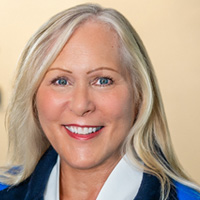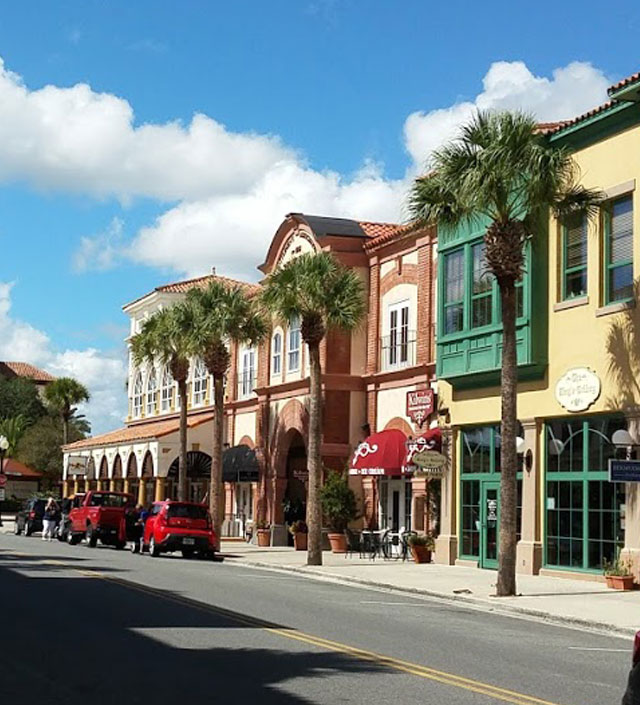
My husband Murray, and I spent Thanksgiving being utterly grateful we had springlike weather in November in Pinehurst, North Carolina. Our many children, grandchildren and great-grandchildren were busy celebrating with others, making up for pandemic holidays.
The Pinehurst golf community is truly welcoming even for duffers like us. We were happy to be by ourselves for three out of four rounds, save for a forecaddie, on Pinehurst #2. Jack Nicklaus designed Pinehurst #9, our Thanksgiving Day round, with lakes, errant trees and silent beauty in all directions. By day three, we were looking up property in the area, thinking, “What if we bought a lot, built a home to our liking, and retired here?”
Well …. this journey I’m on evolves at warp speed, and then takes pauses.
Selling my wealth-management company last year has turned my retirement thinking inside out. No longer working nights and weekends to run a business, I have time to think and reflect. I’ve helped clients find their post-work path for more than 30 years, and now it’s our turn. Although I’m not ready to retire, my retirement odyssey has begun because it requires a lot of planning to get it right.
Something as seemingly straightforward as the space you will live in creates an avalanche of additional questions to answer.
Climate considerations
While it was warm and sunny in Moore County this Thanksgiving week, the locals kept telling us how lucky we were. They described summers as unbearably hot and crowded. It was hard to picture.
We expanded our property searches to include RiskFactor.com and ClimateCheck.com. While realtor sites provide noise, light and walkability scores, Risk Factor and ClimateCheck help you understand a property’s flood, fire, storm, drought and heat factor. I am waiting for one with a mosquito/reptile factor. The reality is, I do not want to retire someplace where I then feel compelled to leave for months at a time to escape heat, mosquitos and crowds.
I am thinking through what life in a particular home and place will be like, not just now, but 15 years from now when I am 80, perhaps less tolerant of big changes. These can escape examination to an untrained eye or a potential new resident.
If you were expecting to travel to the French Alps to ski and you ended up biking instead, you might tell yourself it was just a low snow year. Longtime residents, however, would know there hasn’t been adequate snow in these parts for more than ten years.
In Florida, it may not be oppressive today to live where the heat can rise to over 100 degrees. But the increasing number of days with those temperatures affects more than just my ability to play outside. If I need work done on my home, workers may not be able to work in the high heat. This would make it harder for me to find workers, even for just home maintenance, when I’m too old to handle these tasks.
Rethinking the ‘forever home’
Today, Murray and I are healthy enough to tend to our seven-plus acres in Virginia horse and wine country. But we see our decade-older neighbors managing aches and pains with property upkeep. So, this may not be a forever home unless I want to pay someone forever to take care of it. I will say it is the only home (out of 14) that I have ever missed when I am away.
As many of us confirmed in the last few years, trapped at home by the pandemic, where you spend your life’s minutes, the space you live in, is at least up there with how you spend them.
For me, a sense of place includes changing seasons, varying weather (mostly moderate, please), the ability to be outdoors many days of the year, and walkability. If I have to use my car to get everywhere as I age, I believe I may get out less often.
Then there are the economics of a place. We might assume that living in the Carolinas must be less expensive than the pricey Washington D.C. metro area. In some ways, it is. What really matters, though, is comparing the way I spend my money to general cost-of-living calculators.
Must-haves and dealbreakers
Making a list of dealbreakers, wants and wishes is helping to sharpen my thinking. A dealbreaker for me is outside noise levels. My list of wants and wishes includes nearby medical facilities, airports and farmers’ markets, as well as easy access to things I like to do, such as hiking, auditing classes, and attending plays and movies.
My sense of space includes the walls I live inside and my property’s outside space. We just renovated the 1998 home we live in, and I am loathe to update someone else’s dream again if I can build my own for anywhere close to the same price. We entertain, exercise, work, and sleep in our home. This is also what we will do in our last home. There are still a few more things to do on this property but we’ve completed the big ones. My husband’s service in the U.S. Air Force lets us enjoy a 2.25% fixed mortgage.
Joint decisions
It’s not just up to me, however, Murray gets a say, too! Still mourning the sale of our beach home last year, he would like to retire to the beach. But having lived through six hurricanes while owning oceanfront in Kure Beach, North Carolina, from 1995 to 2000, I accept the beach owns us, not the other way around. I’m happy to visit instead of own. How will we meet both of our visions for this next phase?
Some things are non-negotiable. When we leave the relative seclusion of our current home, we will need to consider safer doors and windows. Today we enjoy watching the wildlife and the occasional UPS driver on our cameras. Safety and security in our next home will mean paying for casement windows that may include fiberglass or polycarbonate panels.
Building an age-proof home that doesn’t scream “older people live here” is also important. Details matter including lighting for different purposes. I am genuinely surprised at the level of detail I think we need to consider on many aspects of our lives for the next few decades.
Staying in place vs. ‘downsizing’
Perhaps I should slow down long enough to add up what staying in this place means compared with defaulting to ‘downsizing.’
The main reason we upsized in 2014 was we wanted to get out from under the Dulles Airport flight path. In addition, we wanted a view and we wanted wildlife — not a life in the wild which the increasingly crowded eastern part of Loudoun County has become.
We are six minutes from downtown (Leesburg) and just under an hour from the Library of Congress where I am hoping to spend more time in the coming years as I write more. My kitchen is now a perfect kitchen to continue feeding family and friends.
We have extraordinary day trips within an 8-hour drive of this home. For example, we can get to New. York City in under 3 hours by Amtrak’s Acela train and to my favorite beach, Wrightsville (N.C.), in six hours. No place stays the same. So anywhere we move will change, just as this place changes. I feel mentally satiated here. I get bored entirely too easily. Here I can scratch any mental and physical hurdle I wish to through the arts, libraries, universities or the outdoors. (We are an hour from Shenandoah National Park.)
The longevity factor
Having worked from a very young age, it isn’t clear to me what days without working might include. We do know, however, that we won’t be satisfied by increasing the number of parties we host or attend, or the rounds of golf we play.
Additional Reading: Ten Steps to a Successful Succession Plan
Murray just started a new position at age 67, so we have a couple years to get much more clarity on what we want, when we want it, and the resources we’d be willing to use to get it.
Murray has more longevity on his side. According to Ancestry.com, I do not. But what if that’s wrong?
It is strange how my current age looks and feels to me compared to how I thought it would. When my mom died at age 57, I assumed I would not see 60. As I’ve blown past 60 to 65, I’ve become a bit possessive about the future, which is amusing considering I never thought I would see it.
I do not exercise to extend my days; I exercise to extend the pleasure of the days I have. I hated being broke as a kid, but I think I’m okay with risking outliving my money by a few years if the years I have are well spent.
Embracing the unknown
I am prepared to be surprised and delighted by new discoveries as I travel forward along this path. When I was young and athletic, golf bored me as I found it excruciatingly slow. Two ankle replacements and 40 years later, it’s a perfect fit for my speed and abilities.
Golfers yell, “Fore!” to warn those ahead of them a ball is coming their way, not knowing where it will land. I do not yet know where Murray and I will land as I navigate, but I will keep searching for the answers that are right for me. I would expect no less for clients as they navigate their next steps.
Bonnie A. Sewell, CFP, CDFA, AIF, CEPA, is a managing director and senior wealth advisor with Dakota Wealth Management. She is the author of “Love-Jacked! Divorce Your Spouse, Not Your Dollars” and believes effective divorce financial planning is the best antidote to one of life’s most difficult transitions.







